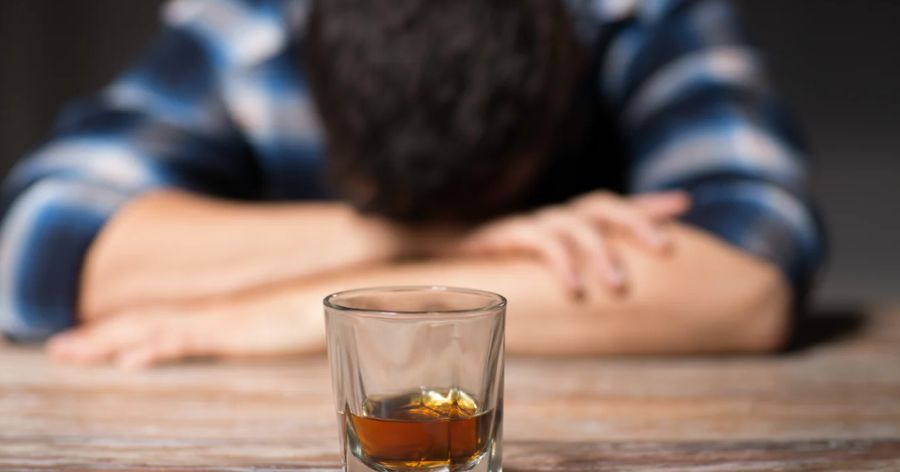One of the most common questions about kava is how it compares to alcohol. Can kava be used as an alternative to alcohol? Is it safe to mix the two?
In this article, we will explore the potential of using kava as a replacement for alcohol. We will also discuss the idea of kava as an alternative to alcohol.
What are the pros and cons of both and some personal anecdotes? What are the differences and why shouldn’t you mix kava with alcohol?
Alcohol has been used for thousands of years in our shared culture and history in humanity. It has a place in our society and we enjoy it when it’s consumed responsibly. That doesn’t mean that can work for everyone.
Kava can have unique advantages over using alcohol and is a great alternative to alcohol in social situations, or possibly therapeutically. Kava can also assist those whose alcohol consumption effectively consumes them. Helping to break a simple bad habit or used as a part of a program to conquer addiction.
Why do people use alcohol?
There are too many reasons to list. Many of them revolve around social lubricant, ceremonial, or medicinal. Alcohol is deeply ingrained in our society around the world. America tried to abolish it, but there was such a backlash it simply created another, more seedy market.
Alcohol is used at most parties like weddings, birthdays, clubs, etc. It’s used during dates to loosen the nerves all of us feel when we’re trying to meet someone new. It’s used widely around the world in business to help make more solid relationships. Some use it to dull pain, mentally or physically or to help fall asleep.
In any of these scenarios, if alcohol is respected and used responsibly, it can help. If it’s overused or used irresponsibly, it can have dire consequences.
Drinking kava with, after, or before alcohol
Is it safe or desirable to mix kava with alcohol, or to drink alcohol shortly before or after consuming kava?
No, it is not. Mixing kava with alcohol, or drinking alcohol shortly after kava, is neither healthy nor advisable.
Kava can inhibit liver enzymes that are responsible for alcohol metabolism. Those enzymes create a type of wall and only let a certain amount of alcohol through to be used by your body. Kava can make those enzymes turn into more of a gate. Still blocking some but letting much more through than your body is designed to deal with.
This is the same kind of thing doctors tell their heart patients to do with heart medication and grapefruit. A heart medication is designed to work with your body’s liver enzymes to metabolize a specific percentage of the medication. The rest is blocked and passes through as waste. When you eat a grapefruit in that scenario, your body lets more of the medication through, which can be harmful.
This means that consuming kava can amplify the negative side effects of alcohol, such as severe hangovers and increased sedation. However, having a beer a few hours after kava will not "destroy" you.
Some people on the islands of the South Pacific do, which is called “washdown”. However, it’s not the safest choice to make. It defeats the purpose of drinking kava (which is also more expensive than alcohol). Alcohol takes over the calming effects of kava and replaces it with dullness and intoxication that’s completely different from the effects of kava.
How does kava differ from alcohol?
Traditionally, in the islands of the South Pacific, kava is used for many different purposes. Ranging from ceremonial through medicinal to recreational. In many societies across the South Pacific, the roles of kava and alcohol are intertwined with those in other cultures.
Both are consumed for the same reasons at the same general times (evening to night time). There are some major differences between kava and alcohol which are outlined below:
The effects kava produce depend on several active compounds (kavalactones) and their specific distribution and concentration (that differs from one cultivar to another and whether the kava comes from the lateral roots or stump). Kavalactones and other phytochemicals work synergistically, as well as the form and style in which the plant is consumed.
Some kavas can be more euphoric and mentally uplifting also known as heady, while others are more sedating or mellowing also known as heavy.
Different kavas act quickly, while others act slowly.
Differences in styles of drinking don’t just result in the different intensity of the effects, but also in producing noticeably different experiences.
Alcohol's effects are caused solely by ethanol. Different alcoholic beverages have varying levels of ethanol, and different drinking styles can lead to different levels of intoxication. However, these differences are more about quantity than quality.
Reverse Tolerance: Unlike alcohol, many users find the effects of kava will become stronger over time.
Many first-time kava users either do not feel anything or only experience mild effects. This is commonly referred to as “reverse tolerance”. This means that the more kava one drinks, the less one needs to feel and enjoy its effects.
Kavalactones build up in your system and degrade slowly as your body uses them or dissipate. Allowing you to use less kava than you would have earlier with the same effect, or the same amount of kava with more effect.
With the above being true, kava works differently for everyone. Where you may have a kava that would have great effects, it may not do much for me. In that case, that particular mix of kavalactones, etc, may simply not work well for you, and trying another mix or cultivar would be recommended.
Kava creates a peaceful experience. When people consume kava, it is generally associated with a peaceful disposition and interaction. This is related to the fact that kava itself produces a sense of calmness. It is related to the fact that kava is best enjoyed in a peaceful, serene ambiance.
Whereas alcohol consumption can create loudness, agitation, rage, and violence, kava sessions are quiet and peaceful. Conversations are usually quiet, and if there is music, it is played at a low volume and is relaxing. The more kava people drink, the more mellow and quiet they become.
Kava bars in North America tend to play music louder at certain times to give people that “bar” experience, without consuming alcohol. The nonalcoholic bar scene has been rising in popularity giving those who don’t want or can’t have alcohol a place to have that same party, socially lubricated experience.
Unlike alcohol, kava is not physically addictive.
As explained by Dr. Lebot: "By pharmacological standards, kava is not classified as a drug, as its consumption never leads to addiction or dependency". What is meant by this is that those who consume kava over a long period and then stop, do not appear to be experiencing any withdrawal effects.
Furthermore, people do not seem to develop a tolerance for kava. Kava exhibits "reverse tolerance," meaning new users need much larger amounts to feel its effects compared to regular users.
We have always found Kava's lack of addiction potential fascinating and perplexing. To understand why kava doesn't seem to cause addiction, we contacted Dr. Mathias Schmidt, a known kava expert, for his opinion.
In his opinion: Concerning the pharmacology of kava (…) the mechanisms of action are not well known. This is a non-standard mechanism, there is one group that showed highly interesting and selective effects on certain ion channels related to the excitability of nerve cells.
The effect could be self-controlled because of a highly complex and extremely sophisticated distribution of such channels throughout our CNS. This is not the typical addictive mechanism of drug blocking by activating a receptor like the opioid receptors or GABA directly, it may be all about intracellular sodium and calcium concentrations at the right place.
Very small concentration changes, huge overall effect, but no addiction. The ion channels don’t multiply, they just open or close. That’s different in typical addictions, where the number of receptors is regulated up or downwards, which causes a problem the moment the challenge (the addictive drug) is withdrawn.
Condensed into fewer words: Physical addiction means if you go off something you have withdrawal symptoms. If you drink coffee for a while and stop you’re likely to get a headache. That’s a physical addiction.
I will say, that addiction is complicated. Physical addiction and mental addiction are two completely different things and are both challenging to break if created. A mental addiction can lead to an addiction to anything like being a workaholic.
Like many other substances and activities, kava can be habit-forming. It's important to make sure that kava consumption does not interfere with other responsibilities and obligations.
Kava appears to be facilitating deep and regenerating sleep.
Limited research and anecdotal evidence suggest that kava, particularly the heavier cultivars, likely has sleep-inducing and sleep-quality-improving effects. It’s not guaranteed so try it for yourself to see if it works for you.
Search vendors for reviews for heavy cultivars, not heady. Heady cultivars can uplift your mood and energize you. If you’re already too energized, it is possible those can make you more anxious.
Exploring Kava and Its Benefits:


